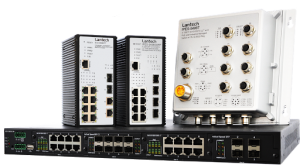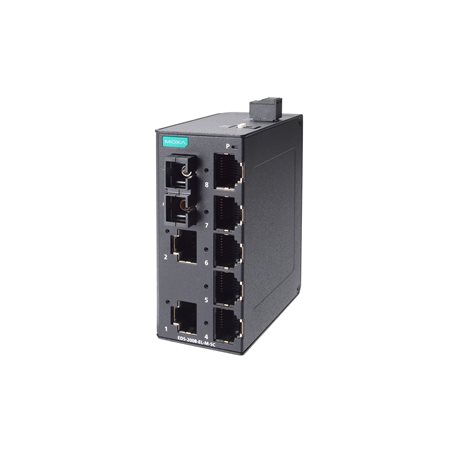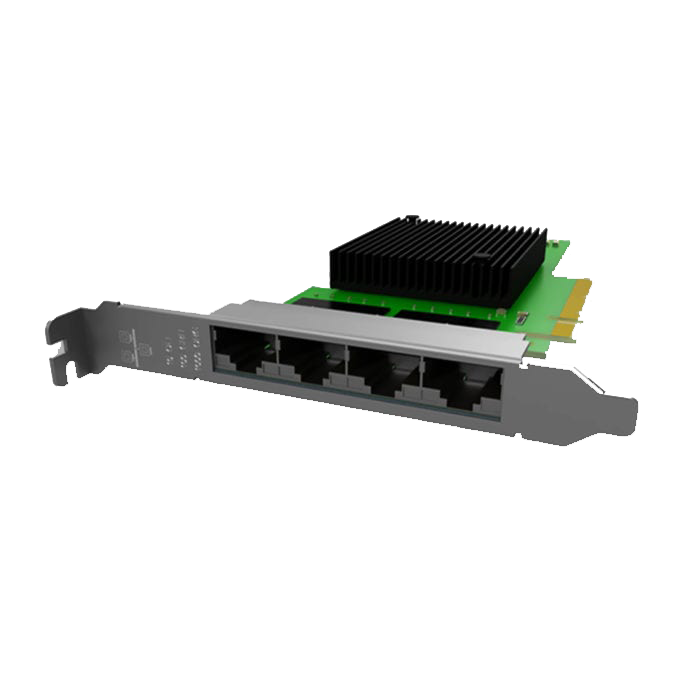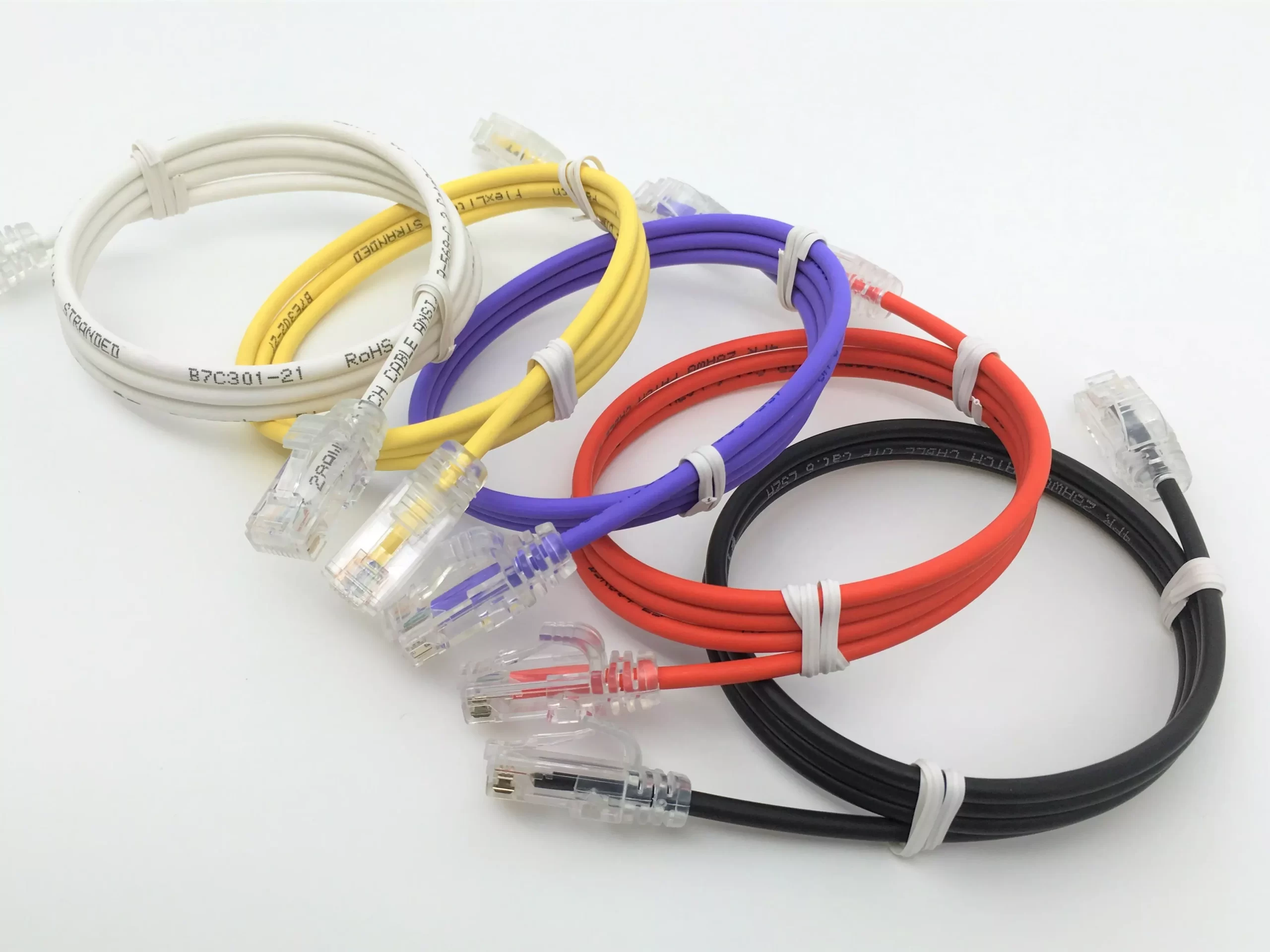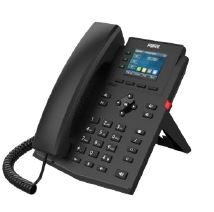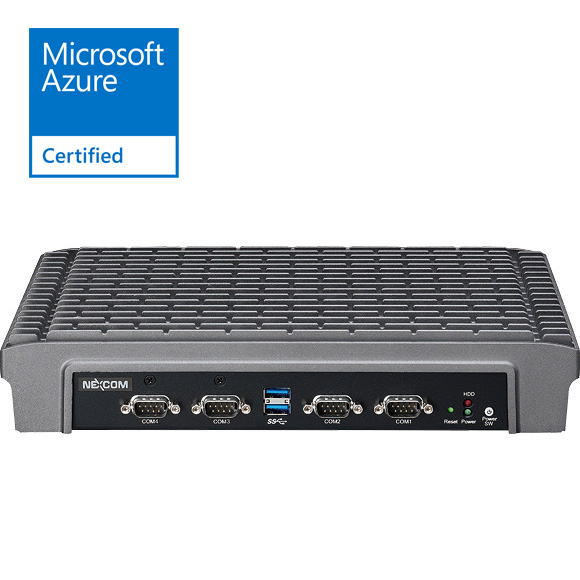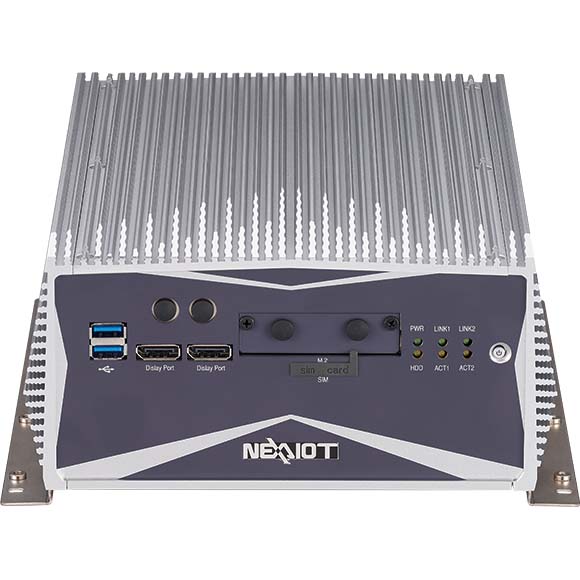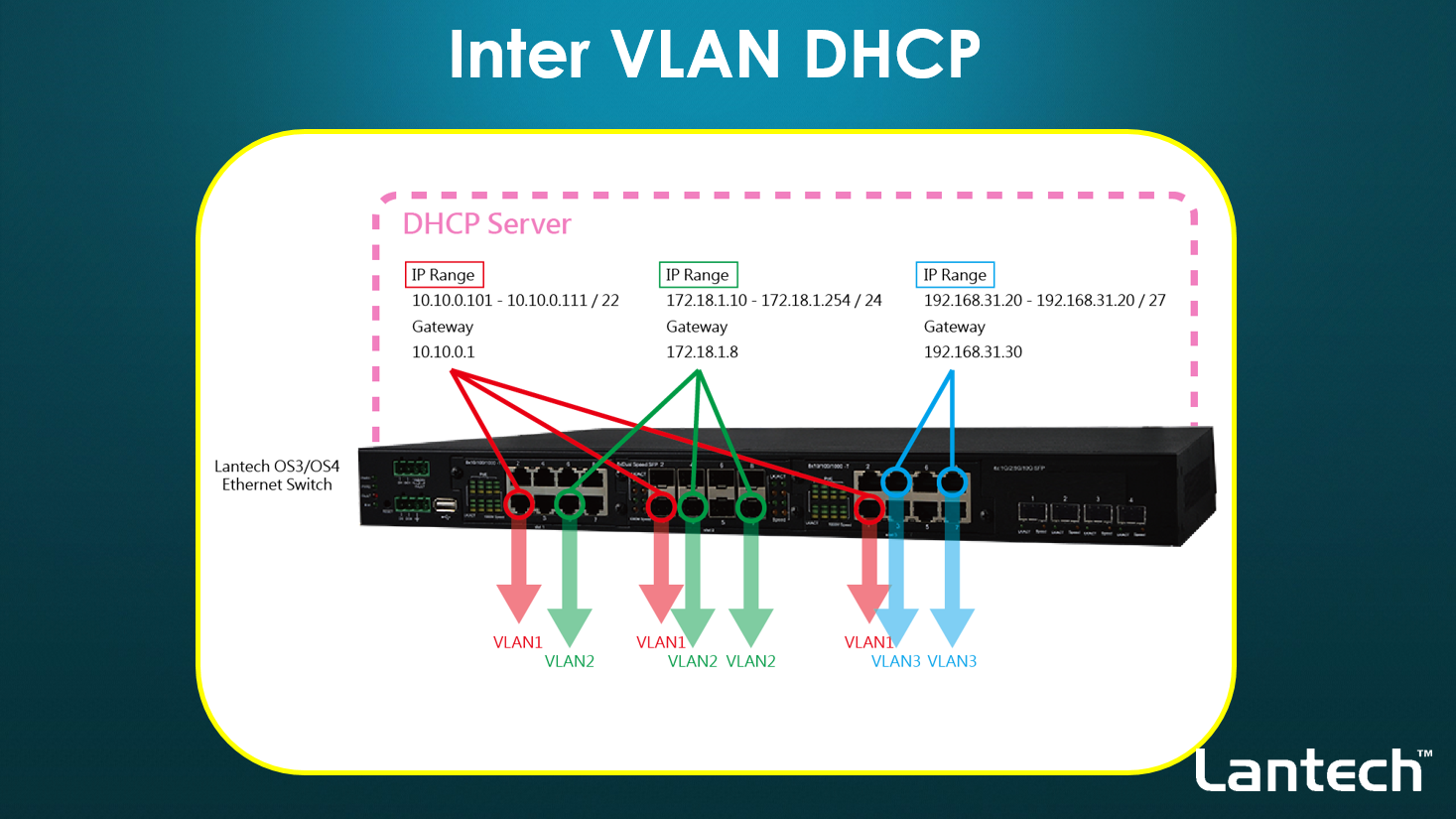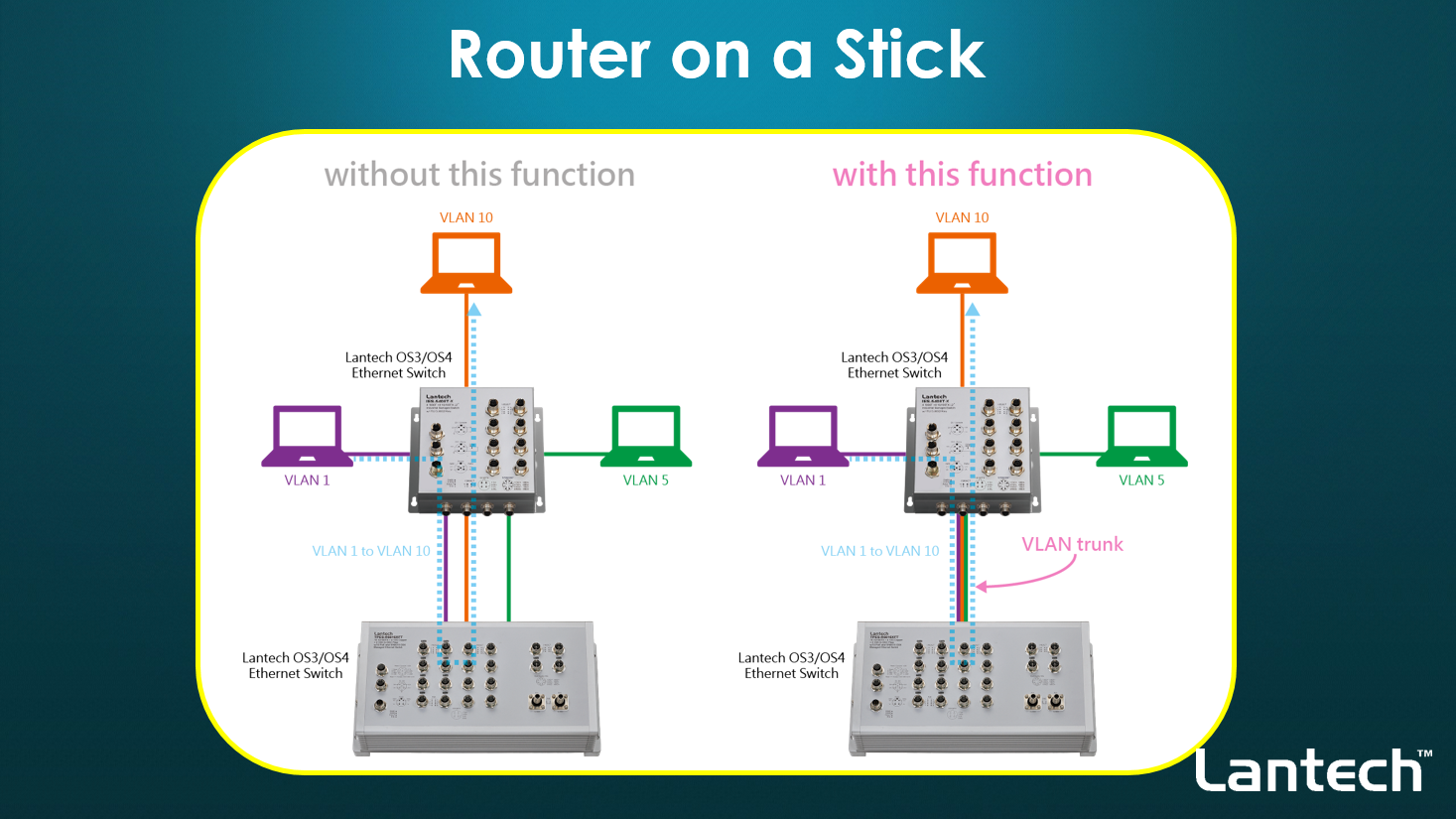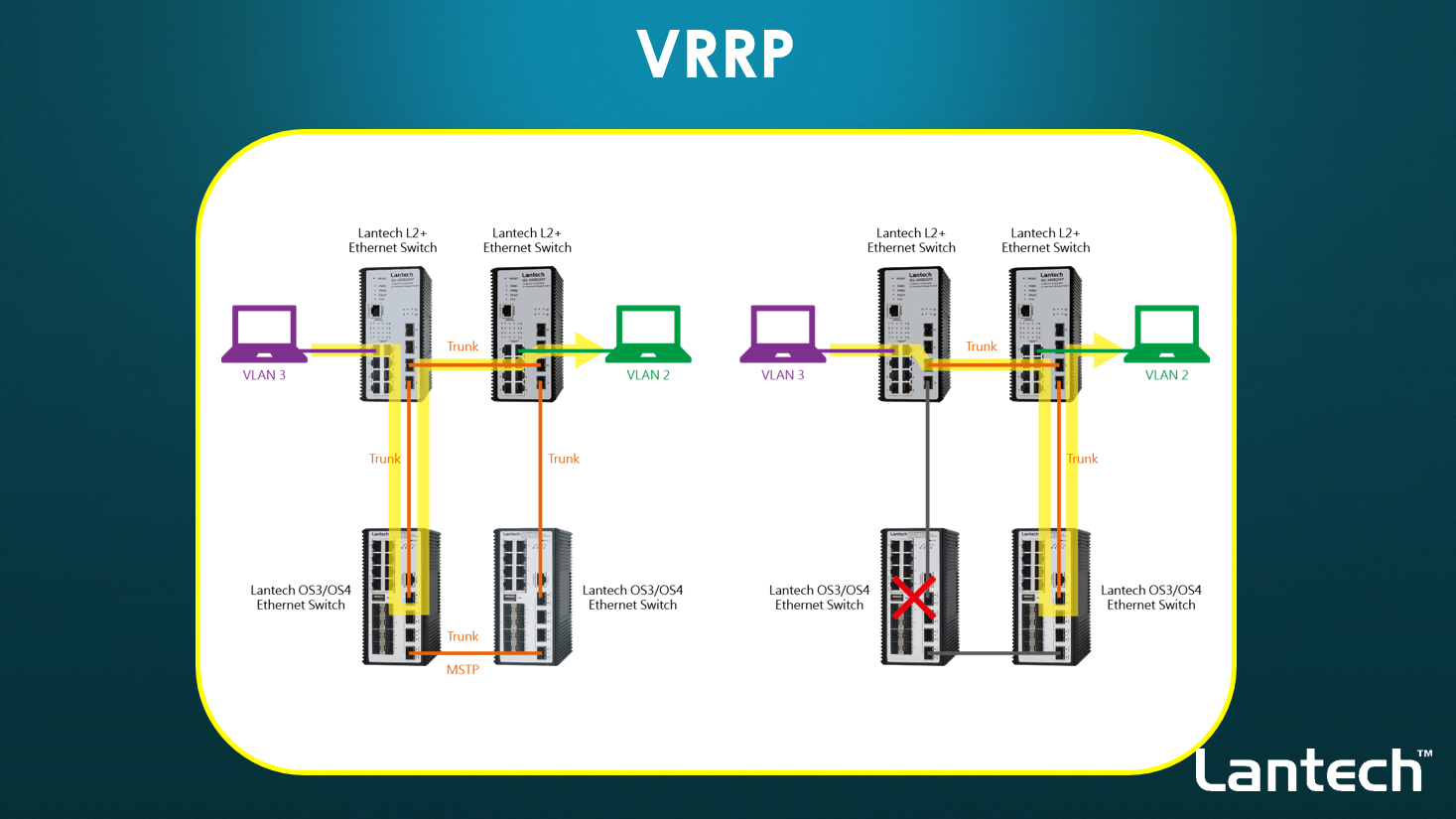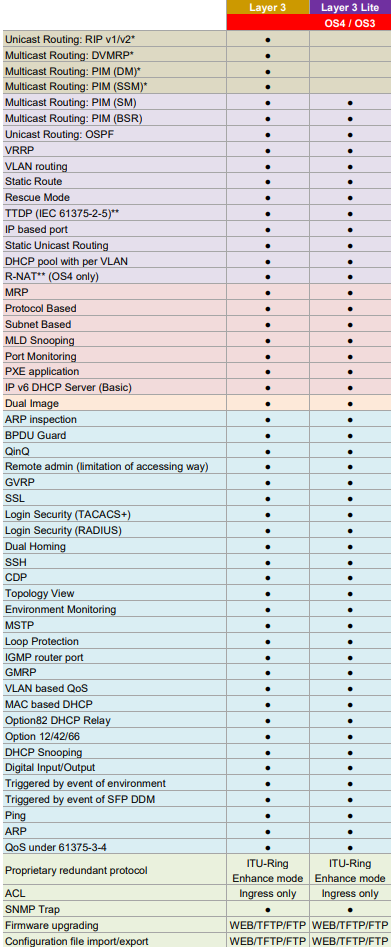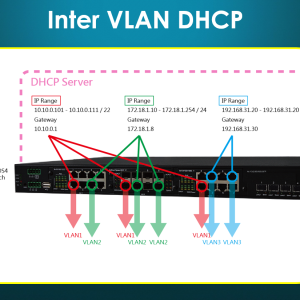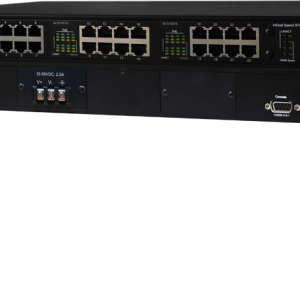توضیحات
پلتفرم OS3 – L3L برای اضافه کردن قابلیت های لایه 3 به سوییچ های لن تک با سیستم های عامل OS3 استفاده می شود و شامل ویژگی های نظیر پروتکل های روتینگ بین VLANها، قابلیت های مالتی کست برای بهبود امنیت و کارایی بهتر شبکه می باشد. DHCP Relay لایه 2 و لایه 3 می تواند آدرس های آی پی را بین VLAN ها انتقال دهد که باعث مدیریت بهتر تجهیزات می گردد.
سوییچ های لن تک که دارای فریم ویر OS3/OS4 هستند، با دو ایمیج فریم ویر با مکانیزم محافظت Nand-Flash کار می کنند که اطمینان بیشتری در خصوص پایداری، قدرت و کیفیت کارکرد سوییچ در کاربردهای سخت وجود داشته باشد.
در زیر لیست ویژگی های لایسنس L3lite شرح داده شده است:
FEATURES & BENEFITS – L3L
- Inter-VLAN Routing
Route traffic between different VLAN by implementing a switch with routing function in the network. - Router-on-a-stick
A type of routing configuration in which a single physical interface set as VLAN trunk port manages traffic between multiple VLANs from edge site. - VRRP
Provides automatic assignment of available VLAN gateways to participating hosts and increases the availability and reliability of VLAN routing paths via automatic default gateway selections on different VLAN groups. - Static route (Up to 32)
Set routing path manually, static routes are fixed and do not change if the network is changed or reconfigured. - Rescue mode
Offers the ability to repair operating system if the booting image of the switch is damaged. - PIM-SM
Protocol-Independent Multicast (PIM) is a family of multicast routing protocols for Internet Protocol (IP) networks that provide one-to-many and many-to-many distribution of data over a LAN, WAN or Internet. PIM Sparse Mode (PIM-SM) explicitly builds unidirectional shared trees rooted at a rendezvous point (RP) per group, and optionally creates the shortest-path trees per source. PIM Allow RP (Rendezvous Points) enable the receiving device to use its own RP to create state and build shared trees when a PIM Join is processed and a different RP is identified. Lantech switches support static RP client and dynamic RP address (BSR). BSR (Bootstrap) can let Lantech switch find address of RP automatically. - OSPF
Open Shortest Path First (OSPF) protocol is an Interior Gateway Protocol used to distribute routing information within a single Autonomous System. - TTDP (IEC61375-2-5)**
TTDP (Train Topology Discovery Protocol) can assign IP and Gateway IP automatically when train network topology is changed due to the adjustment of train cars. - Dual flash images
Provides independent primary and secondary operating system files for backup while upgrading - Multiple configuration files
Stores easily to the flash image - Complete session logging
Provides detailed information for problem identification and resolution - SNMPv1, v2c, and v3
Facilitate centralized discovery, monitoring, and secure management of networking devices - SNMP MIB – RMON
Uses standard SNMP to monitor essential network functions; supports events, alarm, history, and statistics group plus a private alarm extension group - Command authorization
Leverages RADIUS to link a custom list of CLI commands to an individual network administrator’s login; an audit trail log activity - Secure Web GUI
Provides a secure, easy-to-use graphical interface for configuring the module via HTTPS

